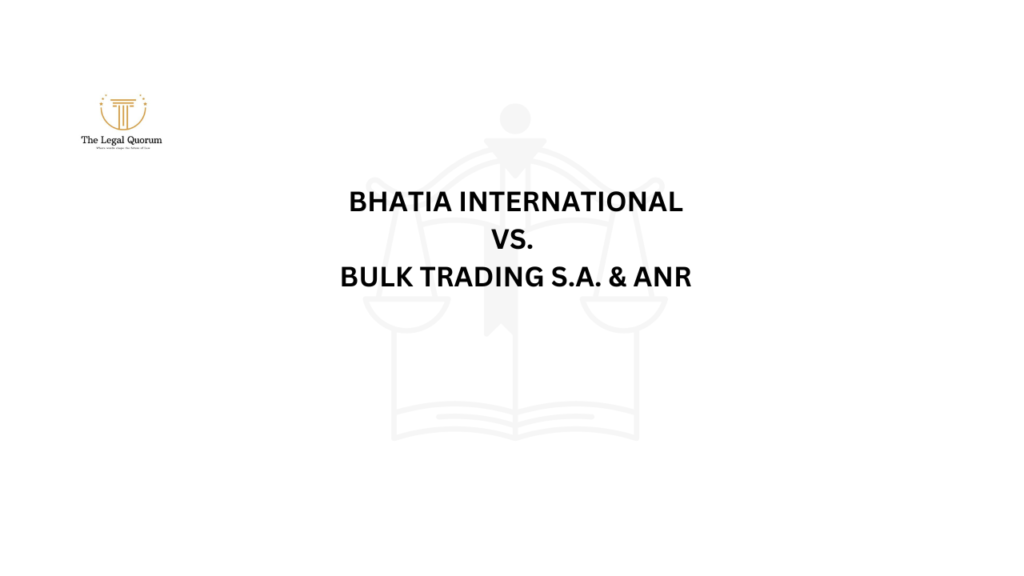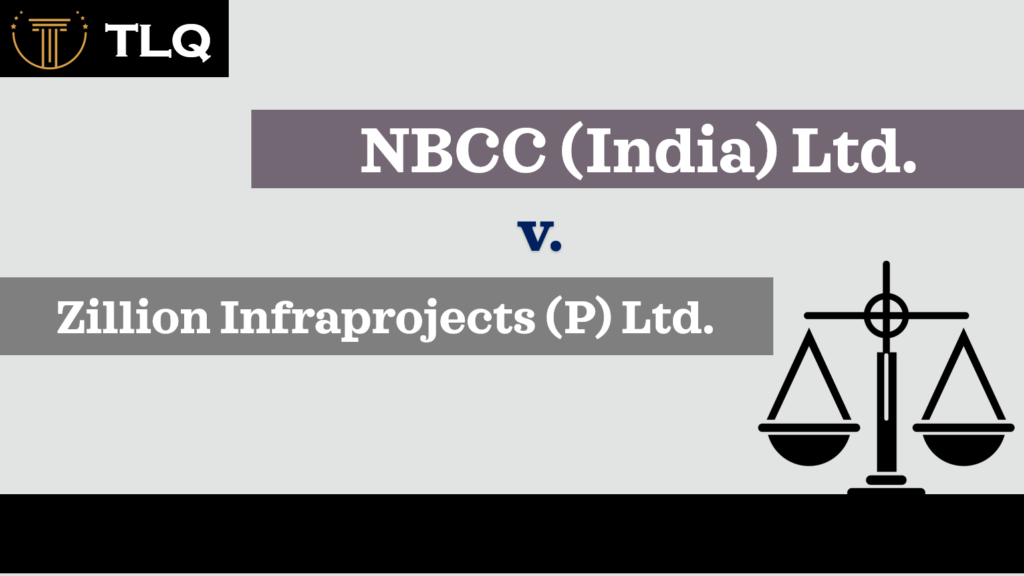Published On: 4th October, 2024
Authored By: Dorothy Kashyap
NEF Law College
Introduction
In our increasingly globalized world, cross-border transactions and investments are becoming more common. With this increase in international business, there has also been a rise in cross-border disputes. Traditional litigation may not always be the most efficient or effective way to resolve such disputes. This is where international arbitration becomes valuable as an alternative, offering a flexible and enforceable mechanism across borders. This article explores the key elements of international arbitration, emphasizing its significance, processes, advantages, and challenges in resolving cross-border disputes.
The Concept of International Arbitration
International arbitration is a method of resolving disputes in which parties from different jurisdictions agree to submit their disputes to a neutral third party, known as an arbitrator or a panel of arbitrators. The arbitrator’s decision called an award, is binding on the parties and can be enforced in multiple jurisdictions under international treaties such as the New York Convention.
Historical Context
The roots of arbitration can be traced back to ancient civilizations, but its modern form began to take shape in the early 20th century. The establishment of the International Chamber of Commerce (ICC)[1] in 1919 and the adoption of the New York Convention in 1958 were pivotal in promoting arbitration as a preferred method for resolving international disputes.
Legal Framework
The main legal framework for international arbitration includes:
- New York Convention (1958): Also known as the Convention on the Recognition and Enforcement of Foreign Arbitral Awards[2], this treaty requires signatory countries to recognize and enforce arbitration agreements and awards made in other signatory states, with limited exceptions.
- UNCITRAL Model Law (1985, amended in 2006): The United Nations Commission on International Trade Law (UNCITRAL)[3] created this model law to standardize and modernize national arbitration laws, providing a template that countries can adopt or modify to fit their legal systems.
- National Arbitration Laws: Each country has its own laws regulating arbitration, which can impact the conduct of arbitration proceedings and the enforcement of awards within its jurisdiction.
Key Elements of International Arbitration
Arbitration Agreement
The arbitration agreement is crucial in international arbitration. It is a contract in which the parties agree to resolve their disputes through arbitration rather than through the court system. This agreement can be an independent contract or a provision within a larger contract. Key elements to consider are:
- Agreement: Both parties’ consent to arbitration is crucial for ensuring the legitimacy of the arbitration process. This agreement underscores the fairness and integrity of the proceedings.
- Scope: The agreement should unambiguously specify the categories of disputes that will be subject to resolution through arbitration. It has the flexibility to cover all disputes arising from the contract or to be restricted to certain specified issues.
- Arbitration Rules: Parties often detail the rules that will govern the arbitration process, such as those of the ICC, the London Court of International Arbitration (LCIA)[4], or the American Arbitration Association (AAA)[5].
- Arbitration Venue: The location of arbitration determines the procedural law that will apply to the arbitration proceedings. It also affects the jurisdiction for judicial review of the arbitral award.
Arbitrators
Arbitrators are essential in the arbitration process as they serve as neutral third parties chosen by both sides in a dispute. There are a few key considerations when it comes to arbitrators:
- Selection: The disputing parties can agree on a single arbitrator or a panel of three arbitrators. With a panel, each party selects one arbitrator, and a presiding arbitrator is chosen mutually or by an appointing authority.
- Qualifications and Expertise: Arbitrators are typically chosen for their expertise in the relevant field, legal knowledge, and reputation for impartiality and fairness.
- Independence and Impartiality: Throughout the process, arbitrators must maintain their independence and impartiality. They are required to disclose any potential conflicts of interest.
Arbitration Procedure
The process of arbitration is intentionally designed to be adaptable and can be customized to meet the unique requirements and preferences of the involved parties. It typically includes the following stages:
- Commencement: Arbitration begins when one party submits a notice of arbitration, following the rules that both parties have previously agreed upon.
- Preliminary Hearings: The hearings will establish the procedural framework, which will include specific deadlines for submitting materials, sharing evidence, and addressing other procedural issues.
- Exchange of Pleadings: During legal proceedings, the involved parties are required to prepare and submit written statements outlining their claims and defenses. These documents should clearly articulate their respective positions and specify the type of relief or remedy they are seeking.
- Evidence and Witnesses: During the course of the proceedings, both parties have the opportunity to introduce evidence and summon witnesses in order to bolster their respective positions. It’s worth noting that the regulations concerning evidence tend to be less rigid than those in a traditional court setting, allowing for a more flexible approach.
- Hearings: During oral hearings, people can speak to present their arguments and question witnesses. These hearings can happen in person or over videoconference for flexibility and convenience.
- Deliberation and Award: After considering the evidence and arguments, the arbitrator(s) deliberate and issue a written award The award is binding and enforceable, subject to limited grounds for challenge.
Enforcement of Arbitral Awards
One of the most significant advantages of international arbitration is the ease of enforcing arbitral awards. The New York Convention provides a robust framework for enforcement, with over 160 signatory countries agreeing to recognize and enforce awards made in other member states. The grounds for refusing enforcement are limited and include:
- Invalidity of the Arbitration Agreement: If the arbitration agreement is found to be invalid based on applicable laws and regulations, its enforcement could be declined.
- Violation of Due Process: The proceedings cannot be enforced if a party did not receive sufficient notice or a chance to present its arguments and evidence. This underscores the significance of ensuring that all parties involved are properly informed and allowed to fully engage in the process.
- Excess of Authority: It is possible to dispute the award if the arbitrator or arbitrators exceed their authority or make decisions on issues not included in the arbitration agreement.
- Public Policy: The enforcement of an arbitral award may be refused if it is found to be inconsistent with the public policy of the state in which enforcement is sought. Such refusal may arise when the award would entail a breach of fundamental principles of justice or the fundamental moral and justice values of the state.
Advantages of International Arbitration
- Neutrality
One of the primary benefits of international arbitration is the neutrality it offers. Parties can choose arbitrators from neutral countries, avoiding potential biases associated with national courts. This neutrality is particularly important in disputes involving parties from different cultural and legal backgrounds.
- Flexibility
Arbitration procedures are highly flexible and can be tailored to the specific needs of the parties. This includes the ability to choose the language of the proceedings, the location, and the applicable procedural rules. Such flexibility can lead to more efficient and cost-effective dispute resolution.
- Expertise
Arbitrators are often selected for their expertise in the relevant field, ensuring that the dispute is resolved by individuals with a deep understanding of the subject matter. This is especially valuable in complex commercial or technical disputes.
- Confidentiality
Unlike court proceedings, which are typically public, arbitration can be conducted in private, preserving the confidentiality of the dispute and the parties involved. This confidentiality can protect sensitive business information and maintain the parties’ reputations.
- Enforceability
The enforceability of arbitral awards under the New York Convention is a significant advantage. The convention’s broad acceptance means that awards can be enforced in a wide range of jurisdictions, providing parties with confidence that the resolution will be upheld.
Challenges and Criticisms
- Cost
While arbitration is generally considered a more cost-effective alternative to litigation, it can still entail significant expenses, particularly in intricate cases requiring extensive evidence and expert testimony. The fees associated with arbitrators, administrative costs, and legal representation can accumulate, potentially rendering arbitration financially burdensome for certain parties.
- Delays
Arbitration is frequently believed to be a faster alternative to litigation; however, in reality, this is not always the case. While simple arbitrations may indeed proceed swiftly, complex arbitrations can encounter substantial delays, especially if there are disagreements regarding procedural matters or if parties’ resort to delaying tactics. These complexities can sometimes result in arbitration proceedings taking just as long, if not longer, than traditional litigation.
- Lack of Appeal
Arbitral awards are typically considered to be final and binding, allowing for limited grounds for appeal. While the concept of finality can provide efficiency and closure to the dispute resolution process, it also poses a potential challenge for parties who may wish to challenge an award based on a significant error of law or fact made by the arbitrator. This limited ability to seek recourse underscores the importance of carefully considering the selection of arbitrators and ensuring that the arbitration process is conducted fairly and transparently.
- Enforcement Issues
The New York Convention[6] offers a strong foundation for the enforcement of international arbitration awards. However, its effectiveness may be compromised by varying interpretations of the grounds for refusing enforcement across different countries. This lack of uniformity could introduce inconsistencies and uncertainties into the enforcement process.
- Potential for Bias
The pursuit of neutrality is a key focus in the arbitration process, however, there are lingering concerns about possible bias. The method of appointing arbitrators may inadvertently give preference to individuals with more experience from certain countries or backgrounds, which could create a perception of bias.
Trends and Developments
Technology and Online Arbitration
During the COVID-19 pandemic[7], the legal practice of arbitration saw a significant surge in the utilization of technology. This included the widespread adoption of virtual hearings, electronic submission of documents, and various other technological innovations, all of which contributed to improved accessibility and efficiency within the arbitration process. Furthermore, the emergence of online dispute resolution platforms has provided streamlined and accessible mechanisms for handling smaller disputes, marking a notable shift in the landscape of arbitration processes.
Third-Party Funding
Third-party funding[8], also known as litigation funding or third-party litigation finance, is a practice where a non-party provides financial support to a party involved in a legal dispute in exchange for a share of the potential proceeds. This funding can cover legal fees, arbitration costs, and other expenses related to the dispute. Third-party funding is increasingly being used in arbitration proceedings as a means for parties with limited financial resources to pursue their claims. While it can level the playing field and enable access to justice for smaller entities, it also raises concerns about potential conflicts of interest and control over the proceedings. This has sparked discussions and debates within the legal community about the ethical implications and regulation of third-party funding in arbitration.
Diversity and Inclusion
Efforts to enhance diversity and inclusion in the field of international arbitration are gaining momentum. Various initiatives, such as the Equal Representation in Arbitration Pledge[9], are focused on advancing gender diversity among arbitrators. In addition to gender diversity, there are broader endeavors aiming to incorporate arbitrators from a wide range of geographic, cultural, and professional backgrounds, thereby promoting a more inclusive and representative arbitration community.
Transparency
There is an increasingly strong demand for enhanced transparency in the field of international arbitration, especially in cases involving disputes between investors and states. This increased transparency is believed to have the potential to improve the overall legitimacy of the arbitration process by addressing issues related to accountability and fairness.
Conclusion
International arbitration plays a crucial role in resolving disputes that extend across borders. It offers parties a flexible, neutral, and enforceable alternative to traditional litigation methods. Key components, including the arbitration agreement, the role of arbitrators, procedural adaptability, and the enforceability of awards, contribute to its appeal for entities involved in international business. Nevertheless, it does present certain challenges, such as concerns about cost, time delays, and potential biases. To ensure that international arbitration remains an effective tool for settling cross-border disputes and to ensure continued progress, the field needs to embrace technological advancements, advocate for diversity, and enhance transparency. These efforts will be pivotal in addressing the challenges and maintaining the robustness of international arbitration.
REFERENCES
- Gary B Born, ‘International Arbitration: Law and Practice’ (Kluwer Law International 2021)
- Alan Redfern and others, ‘Law and Practice of International Commercial Arbitration’ (Sweet & Maxwell 2020).
- WIPO Arbitration and Mediation Center, ‘What is Arbitration?’ <https://www.wipo.int/amc/en/arbitration/what-is-arb.html> accessed 25 July 2024.
- Margaret L Moses, ‘The Principles and Practice of International Commercial Arbitration’ (Cambridge University Press 2017).
[1] International Chamber of Commerce (ICC), ‘History’ <https://iccwbo.org/about-us/who-we-are/history/> accessed 25 July 2024.
[2] United Nations, ‘Convention on the Recognition and Enforcement of Foreign Arbitral Awards (New York, 1958)’ <https://www.uncitral.org/pdf/english/texts/arbitration/NY-conv/New-York-Convention-E.pdf> accessed 25 July 2024.
[3] UNCITRAL, ‘Model Law on International Commercial Arbitration'<https://uncitral.un.org/en/texts/arbitration/modellaw/commercial_arbitration>accessed 25 July 2024.
[4] LCIA, ‘LCIA Arbitration Rules’ <https://www.lcia.org/Dispute_Resolution_Services/lcia-arbitration-rules-2020.aspx> accessed 25 July 2024.
[5] American Arbitration Association (AAA), ‘International Arbitration Rules’ <https://www.adr.org/InternationalRules> accessed 25 July 2024.
[6] New York Convention Guide, ‘Enforcement of Foreign Arbitral Awards’ <https://www.newyorkconvention.org/> accessed 25 July 2024.
[7] Queen Mary University of London, ‘International Arbitration Survey: Technology in Arbitration’ <https://www.qmul.ac.uk/ccls/research/impact/arbitration/> accessed 25 July 2024.
[8] Ross P Buckley, ‘Third-Party Funding in International Arbitration: Issues and Challenges’ (2017) Journal of International Arbitration.
[9] Equal Representation in Arbitration Pledge, ‘The Pledge’ <http://www.arbitrationpledge.com/> accessed 25 July 2024.



